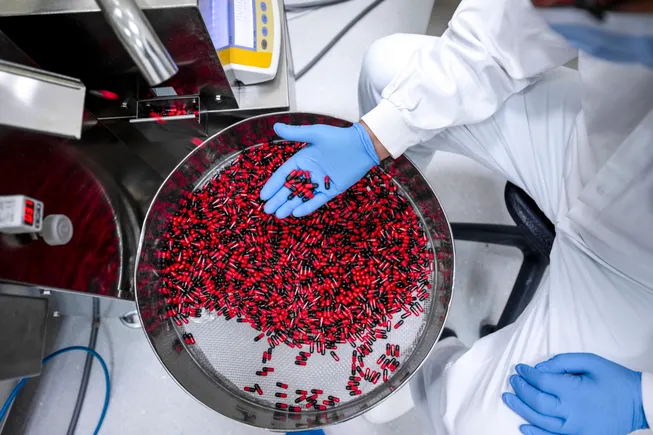Manufacturing investments have become a focal point in the pharmaceutical industry in recent years, with companies like Eli Lilly and Merck & Co. partnering with Purdue University to launch the Young Institute Pharmaceutical Manufacturing Consortium. This consortium aims to research and develop new production technologies to increase capacity and efficiency in drug manufacturing.
Elizabeth Topp, director of the Young Institute, highlighted the importance of bringing together various stakeholders in the pharmaceutical manufacturing value chain, including Big Pharma, startups, equipment manufacturers, and venture capital firms. The initial focus of the consortium will be on drug product manufacturing, with an emphasis on innovation and experimentation.
One of the key areas of focus for the consortium will be improving aseptic processing technology, which is crucial for the manufacturing of injectable drugs. Aseptic processing ensures a sterile environment during manufacturing without using heat sterilization, which is essential for products like insulin and vaccines. By leveraging advancements in AI, robotics, and in-process sensors, the consortium aims to enhance the efficiency and sterility of injectable drug manufacturing.
The collaboration between industry players and academic institutions like Purdue University underscores a commitment to onshoring pharmaceutical manufacturing and bolstering domestic production. This initiative comes at a time when new tariffs threaten to increase costs and exacerbate drug shortages. Companies like Lilly have already made significant investments in expanding their manufacturing capabilities in the US, signaling a shift towards a more localized production approach.
The Young Institute Pharmaceutical Manufacturing Consortium offers companies the opportunity to develop new manufacturing technologies, collaborate with academic experts, and influence industry best practices. By working together to address critical pain points in the industry, members can collectively drive innovation and improve supply chain management.
With a focus on enhancing pharmaceutical manufacturing technology, the consortium aims to make onshoring more achievable and reduce the impact of tariffs on drug production. By improving efficiency, throughput, and supply chain resilience, the initiative seeks to ensure a stable supply of critical medicines during times of crisis.
In conclusion, the Young Institute Pharmaceutical Manufacturing Consortium represents a collaborative effort to drive innovation and enhance the capabilities of the pharmaceutical manufacturing industry. By fostering partnerships between industry leaders and academic institutions, the consortium aims to pave the way for a more efficient and resilient drug manufacturing ecosystem.


